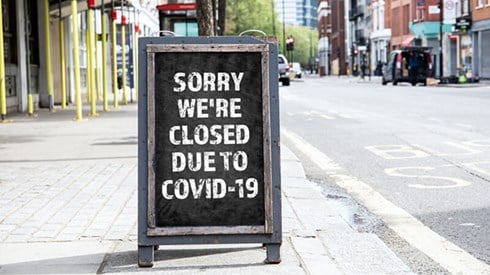COVID-19 Crisis Demonstrates Need for Captives for Risk Mitigation

March 25, 2020

Editor's Note: The views, interpretations, opinions, findings, and conclusions expressed in the following commentary are those of the author, Capstone Associated Services, Ltd.
The fallout from the COVID-19 pandemic highlights the role of captive insurance companies as a risk mitigation tool. However, in the Reserve Tax Court case, the Internal Revenue Service (IRS) rejected what would appear to be appropriate statutory-based captive insurance arrangements formed under various long-standing Internal Revenue Code provisions.
In Reserve, the Tax Court questioned the insureds' need for the chosen in-force policies: pollution liability insurance for a manufacturing facility physically located in the country's largest Superfund site and protection against the fortuitous loss of a major customer, a loss that the insured actually suffered and was paid by the captive insurer. It was the fact that no commercial insurer would write these broad coverages that resulted in the insured turning to its captive, yet the Tax Court in Reserve was not persuaded to accept their validity. This was despite the support of multiple independent actuaries in pricing the policies, with no contradictory pricing testimony.
The Tax Court is currently deluged with cases in which the IRS is questioning the validity of captive insurance, despite the congressionally authorized tax provisions set forth in existing law. Meanwhile, companies are still faced with managing their risks.
Using the logic it applied in its arguments in Reserve, it seems likely that the IRS would also have questioned the validity of business interruption insurance written by a captive insurance company providing for coverage of losses caused by a government-imposed shutdown, claiming it was not a "real risk" or not a "fortuitous risk." Supply chain disruption coverage encompassing government-imposed tariffs, actually seen in 2018 and 2019, might also have been deemed invalid. The same could be said of coverage from a captive insurer for the effect on a business of severe acute respiratory syndrome (SARS) or the wholesale destruction of poultry operations from avian (bird) flu, seen in past years.
The important role of captive insurance companies in providing insurance against risks that the commercial insurance marketplace is unwilling to assume becomes clear with the current pandemic and the potential for resulting wholesale bankruptcy of broad swaths of midmarket businesses—restaurants, hotels, service companies, etc. Many of the risks faced by these businesses could have been covered under a well-designed captive insurance program, all given the lack of availability of these coverages from commercial insurers. In most cases, the heart of a captive insurance company's risk mitigation program is broadly written policies that can respond to loss exposures not available from commercial policies.
In this interconnected world of global supply chains and dispersed customers, current events readily demonstrate that, absent having in place a comprehensive risk management program, many businesses face existential threats to their continuity. Whether these risks relate to Hurricanes Ike, Katrina, or Rita leaving devastation along the Gulf Coast, or Superstorm Sandy in New York, or Colorado Governor Jared Polis's order closing down restaurants and ski resorts throughout that state, these are risks that are appropriate for captive insurance coverage to protect businesses and the jobs that they produce.
A captive insurance company with broadly written business interruption and loss of services policies enables a business to respond to a crisis—like the current pandemic—as opposed to businesses folding their tents and ceasing operations. While it is too late for businesses facing catastrophic losses in the current crisis, having a captive insurer is a vital risk management tool that helps businesses weather crises. This is why captives are ubiquitous among larger companies.
Given the importance of being able to respond to wide-ranging risk exposures through policies customized for a particular business, the current pandemic strongly supports the Tenth Circuit's reversal of the Tax Court's decision in Reserve—and the need for captive insurance. As recognized by the New York Times in "Once Scrutinized, an Insurance Product Becomes a Crisis Lifeline" (March 20, 2020), captive insurance companies have facilitated businesses' risk mitigation strategies for decades. The COVID-19 crisis provides an example of the type of risk that commercial insurers cannot adequately address but that might be borne by captive insurance companies.
March 25, 2020

